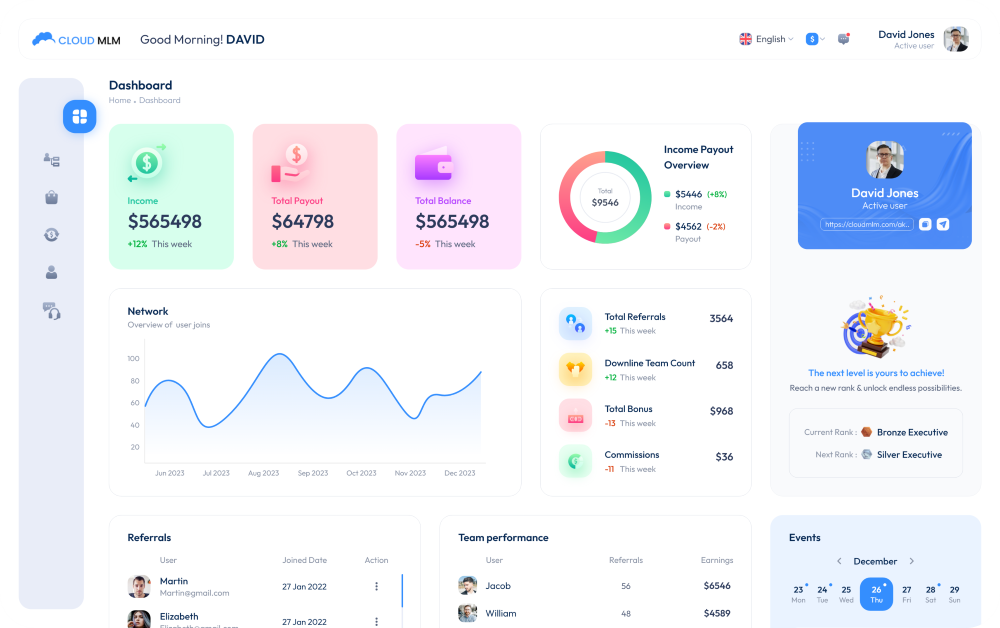Privileged User System
Enhance control and security with Cloud MLM Software’s Privileged User System. Assign specific access levels to key users, ensuring sensitive data is protected and operations run smoothly.

To fulfill their responsibilities, administrators need permissions to perform tasks such as software installation, system configuration, resource allocation, user permission management, and more.
Through this privileged access, administrators typically have access to the data and services that underpin the systems they manage. Additionally, groups of administrators often share administrative permissions. While this facilitates workload management, it complicates the assignment of specific actions to individuals, making it difficult to hold anyone accountable for policy violations or negligence

In computing, privilege is described as the commission of authority over a computer system. A privilege facilitates a customer to function. Examples of different privileges involve the ability to develop a file in a directory, to read or delete a file, connect a device, or have read or written authorization to a slot for conveying over the Internet. Users who have been authorized extra levels of control are called privileged. Users who lose most privileges are described as unprivileged, regular, or normal customers.

The User Management in Cloud MLM Privilege System grants administrators secure access and control over essential tasks while maintaining accountability.
Handling confirmed and unconfirmed customers individually.
Supports privilege to confirm customers exactly.
Transfer confirmation emails to customers in a single click.
Standard collections of changing free users as paid users.
View/edit/delete user information.

The privileges provided to a Cloud MLM account decide which actions the account can do. Cloud MLM privileges vary in the situations in which they implement at various levels of actions:
Administrative privileges; It allows members to handle the operation of the Cloud MLM server. These privileges are worldwide because they are not particular to a specific database.

Database privileges; It implements a database and to all objects within it. These privileges can be allowed for particular databases, or all over so that they are implemented to all databases.
